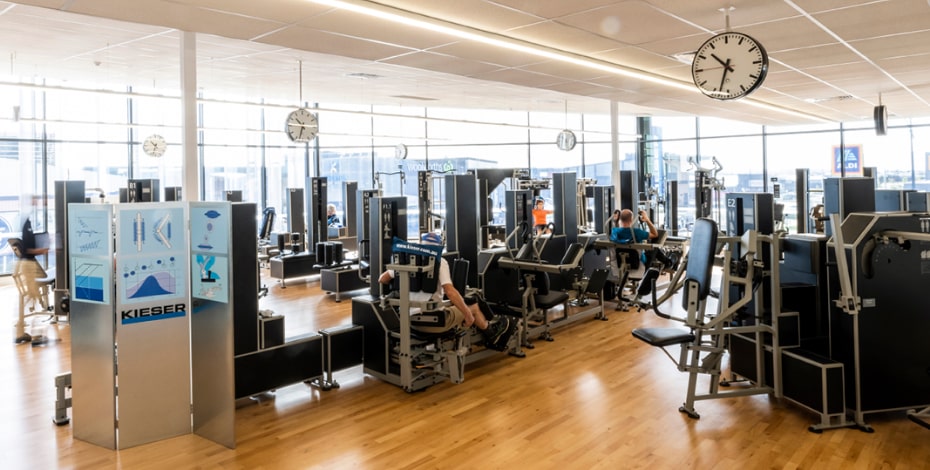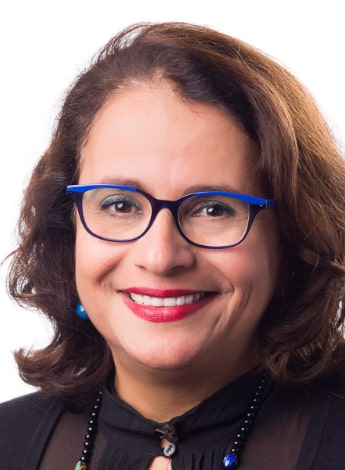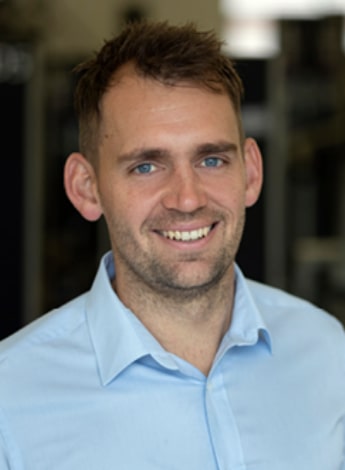
Learning to work, working to learn

Swinburne’s new Master of Physiotherapy degree program integrates clinical education as work experience from the very first weeks of learning.
Setting up a new physiotherapy course gives a university the chance to apply new ideas and best practice to its course design, distinguishing it from other courses available to students.
And that’s exactly what Swinburne University has done with its Master of Physiotherapy course, which has just graduated its first cohort of students.
What distinguishes Swinburne’s course from other physiotherapy courses in Australia is its focus on work-integrated learning (WIL) and industry readiness.
While all physiotherapy students are required to complete a number of clinical placements, typically in five-week blocks, in different physiotherapy settings before graduating, Swinburne is the first to integrate a placement program into every aspect of student learning.
As part of the course, students are immersed in the work environment in a graduated private practice placement that lasts for the entire duration of the two-year course, the Physiotherapy Business WIL program.
It’s a unique approach for physiotherapy, which has traditionally offered students clinical placements in hospitals and public health settings, where the focus is on acute management of injuries and conditions.
Swinburne students still do those key placements.
But the vast majority of physiotherapy jobs available to new graduates these days are to be found in private practice and community-based programs, as that is where the majority of the public present, not hospitals.
Swinburne’s graduated WIL program aims to fill this gap by complementing training in acute hospitals with a comprehensive program in community and private practice settings.
‘Traditionally physiotherapy students are trained mainly in acute hospital settings as this is very important.
'However, the majority of patients are now managed in the hospital for only a brief period of time.
'When they’re medically stable, they’re discharged and sent out into the community to a private rehabilitation hospital, a community outpatient outreach program or into private practice.
'So the typical patient is no longer in the hospital for a long period of time and yet our training is still focusing on that sector,’ says Associate Professor Doa El-Ansary, Course Director and Discipline Lead of Physiotherapy at Swinburne’s School of Health Sciences.
In setting up Swinburne’s physiotherapy program, Doa and her colleagues consulted not just with their course advisory committee and with industry partners, but also with newly graduated physiotherapists, who form a shadow board, asking them where the gaps in their training were and what they felt they didn’t learn as students.

Associate Professor Doa El-Ansary consulted with newly graduated physiotherapists while setting up Swinburne's Master of Physiotherapy course.
‘They said, “We’re not trained as leaders.
"We’re not trained in business and enterprise skills.
"We’re not trained to perform in workplace settings where we have to be answerable to the key performance indicators of that business.
"We do our theory and then we go out in blocks to do our practical placements and really, it’s expected that our knowledge will be transferred into skills by osmosis,”’ she says.
With that in mind, Swinburne University has developed a contemporary physiotherapy course that meets the needs of the industry and of the students who will go on to work in that industry.
From the very first month, Swinburne physiotherapy students are assigned to one of two private physiotherapy companies: Kieser Australia, a network of integrated physiotherapy, rehabilitation and strength training centres; or The Physio Co, which provides physiotherapy services specifically for older Australians.
The students spend one day per week at their assigned company for the full two-year (four-semester) program.
The CEOs from both companies sit on the program’s course advisory committee and have worked closely with Swinburne on the development of the course.
It’s one way of ensuring that the program is aligned with the industry environment that most students will find themselves working in, says Charlotte Marshall, a lecturer and PhD student who helped to design the WIL framework that is central to the program.
Students are assessed according to the Assessment of Physiotherapy Practice (APP), as happens in every clinical placement.
But students must also meet the key performance indicators of the physiotherapy business, which have been aligned to a graduated WIL framework.
‘We’re bridging the gap between what they learn at the university and being able to apply that in the industry environment.
'So that’s really something that’s been key.
'When we send out the assessments to the clinical educators, we include a skills and competencies register that aligns with the stages in the program and the university curriculum,’ Charlotte says.
Students learn how every aspect of the business works, from making appointments to processing payments, and progress from shadowing to taking patient histories and eventually to applying hands-on skills, while being mentored and supervised by physiotherapists.
‘By the end of the two-year program, they’ve actually got a patient list that’s equivalent to a new graduate,’ Doa says.
Kieser CEO Brett Long says students placed at his clinics become part of the team, attending weekly professional development sessions, business staff meetings, social functions and more.
‘One of our three core values is growing people.
'So we live by that and any opportunity we’ve got to accelerate someone’s growth in the health industry, we take,’ Brett says.

Kieser CEO Brett Long describes the benefits of making students part of the team.
Swinburne lecturer and clinical placement coordinator Dr Adrian Pranata describes it as a more holistic kind of placement than standard hospital placements.
‘We ask the employers to see the students as new staff members of the business.
'How would you treat your new staff member so they’ll get introduced to the team culture?
'The students get introduced to how things work in the real world,’ Adrian says.
‘Our WIL placement assessment is tailored to the progression of the student.
'As the students progress through their course, they will obtain more knowledge on assessment and intervention skills.
'Thus the WIL assessment will also be vertically aligned to the students’ skills and knowledge.’
As the WIL program is graduated, this means that the students get to apply their knowledge as they learn it rather than having to wait until the next clinical placement period.
The assessments for the WIL placements have been updated in consultation with Kieser and The Physio Co to ensure that they are aligned with the key performance indicators of the specific business and to the private practice workplace.
‘It makes what you’re learning in every week of your degree really relevant.
'Say you have a lecture on arthritis in the sixth week of your uni course.
'That week you’re in your placement clinic talking to the qualified physios about arthritis and what you learnt in the lecture.
'Or applying it to a few clients that you’re shadowing with the physio.
'So in terms of making the learning relevant, it’s a great conduit,’ Brett says.
Tristan White, CEO of The Physio Co, agrees, noting that the course delivers the so-called ‘soft skills’ as well as more traditional physiotherapy skills.
‘There are really tight links between what they’re doing in class and what they do when they come across to us, but it applies to the more traditional technical skills—clinical reasoning skills, manual handling skills and all those more traditional physio skills—and it definitely applies to the non-clinical skills—the communication skills, relationship-building skills, management skills.
'It is a great blend of the clinical and non-clinical skills,’ Tristan says.
The WIL placement program also gives junior staff at the clinics involved the opportunity to step up, mentoring and supervising students, which he says has been beneficial to his team.
With last year’s COVID restrictions impacting hands-on learning, the course had to adapt along with the placement clinics and students.
Brett and Tristan both say Swinburne did a great job in rising to the challenges of implementing the new course and was willing to fine-tune it along the way.
Ultimately, the course will be judged by the quality of the students who graduate from it.
Both Kieser and The Physio Co have employed some of the students who completed placements with them and speak highly of the students in the program.
‘The experience has been overwhelmingly positive.
'The students are top-calibre graduates; they’re great communicators; they understand the nuances behind running a physio business or physio ward.
'They’re just ready to roll,’ says Brett.
© Copyright 2024 by Australian Physiotherapy Association. All rights reserved.





